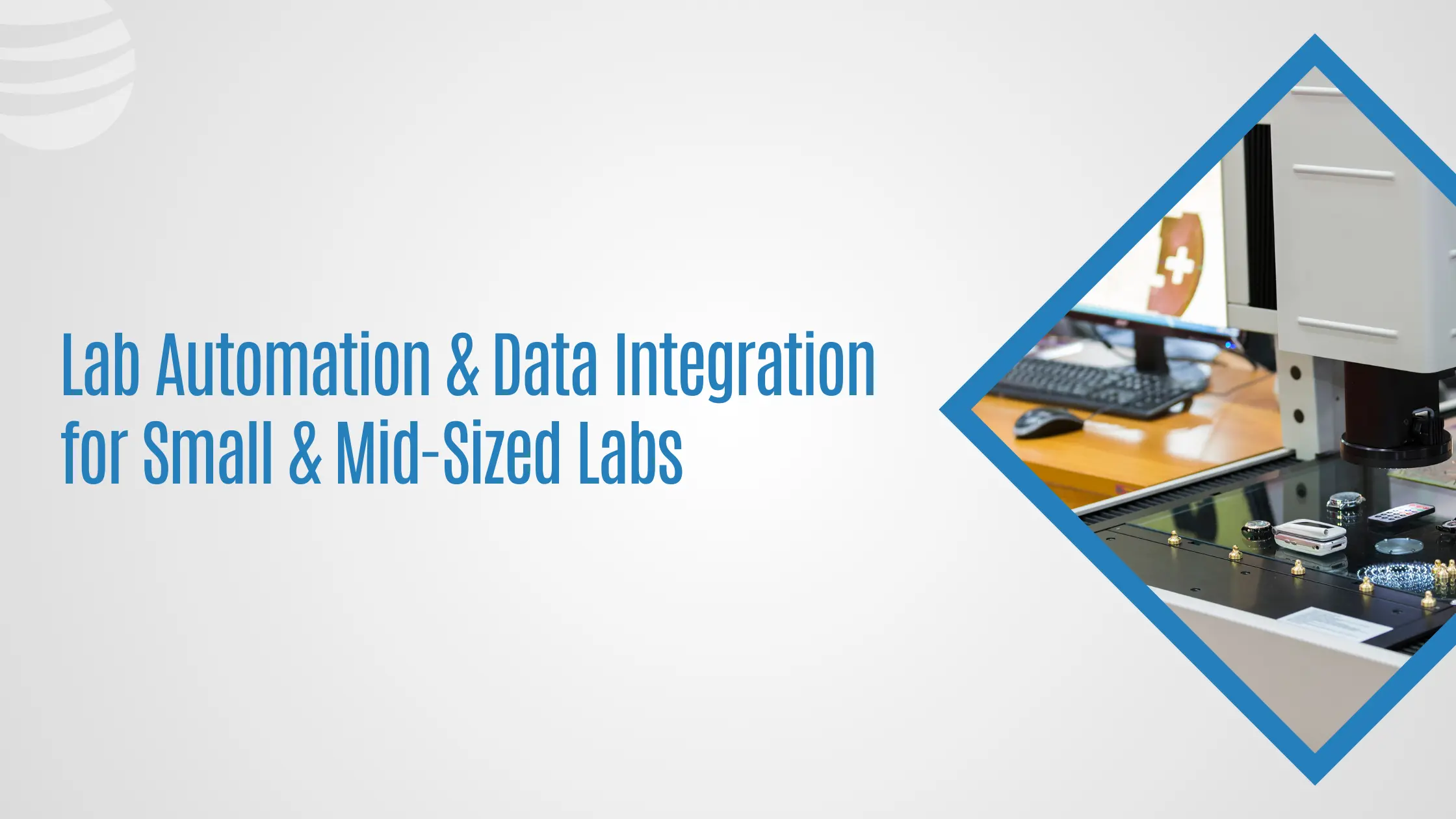In today’s fast-paced and data-driven world, laboratories face increasing demands for efficiency, accuracy, and compliance. A Laboratory Information System (LIS) software can significantly enhance operational workflows, streamline data management, and improve patient care. Recognizing the signs that your laboratory needs a LIS is crucial for maintaining competitiveness and ensuring high-quality service. This article delves into the key indicators that signal the need for implementing a LIS, providing actionable insights and practical advice.
Introduction
Laboratories are the backbone of healthcare, diagnostic, and research industries, generating vast amounts of data daily. Managing this data efficiently is critical for accurate results, timely reporting, and regulatory compliance. However, many laboratories still rely on manual processes or outdated systems, which can lead to errors, delays, and increased costs. A Laboratory Information System (LIS) software is designed to automate and optimize these processes, ensuring seamless data management, enhanced productivity, and improved patient outcomes. If you notice any of the following signs, it might be time to consider integrating a LIS into your laboratory operations.
1. Increased Manual Errors and Inefficiencies
Frequent Data Entry Mistakes
One of the most common signs that your laboratory needs a LIS is an increase in data entry errors. Manual data entry is prone to human error, which can lead to incorrect test results, mislabeled samples, and delayed reports. These mistakes not only affect the quality of service but can also have serious implications for patient safety. A LIS automates data entry, reducing the risk of errors and ensuring data integrity.
Time-Consuming Data Management
Manual data management processes are often time-consuming and labor-intensive. Laboratory staff may spend a significant amount of time entering data, tracking samples, and generating reports. This not only reduces productivity but also diverts attention from more critical tasks. A LIS streamlines these processes, allowing staff to focus on higher-value activities such as analysis and interpretation.
Inconsistent Data Handling
Inconsistent data handling practices can lead to discrepancies and confusion. Different staff members may use varying methods to record and manage data, resulting in a lack of standardization. A LIS provides a centralized platform for data management, ensuring consistency and uniformity across all processes.
2. Difficulty in Meeting Regulatory Requirements
Compliance Challenges
Laboratories are subject to strict regulatory standards, including those set by organizations like CLIA (Clinical Laboratory Improvement Amendments) and CAP (College of American Pathologists). Meeting these requirements can be challenging without a robust system in place. A LIS helps laboratories maintain compliance by automating quality control processes, generating required reports, and ensuring data security and privacy.
Auditing and Documentation
Regular audits and documentation are essential for maintaining regulatory compliance. Manually preparing audit trails and documentation can be a daunting task, especially for large laboratories. A LIS simplifies this process by automatically generating and storing audit logs, making it easier to demonstrate compliance during inspections.
Traceability and Accountability
Traceability and accountability are crucial in laboratory settings. A LIS ensures that every step of the testing process is documented and traceable, from sample collection to result reporting. This level of transparency helps build trust with regulatory bodies and stakeholders.
3. Poor Communication and Collaboration
Inefficient Sample Tracking
Effective sample tracking is essential for ensuring that tests are performed accurately and results are reported promptly. Manual tracking methods can be unreliable and lead to lost or misplaced samples. A LIS provides real-time tracking capabilities, allowing staff to monitor the status of samples at every stage of the process.
Delayed Result Reporting
Delayed result reporting can have serious consequences, particularly in clinical settings where timely information is crucial for patient care. Manual systems often result in bottlenecks and delays, affecting the overall efficiency of the laboratory. A LIS accelerates result reporting by automating the workflow, ensuring that results are available to healthcare providers and patients in a timely manner.
Limited Interdepartmental Collaboration
Collaboration between different departments within a laboratory is essential for efficient operation. However, manual systems can hinder communication and collaboration, leading to siloed workflows and reduced productivity. A LIS facilitates seamless communication and collaboration by providing a unified platform for all laboratory functions.
4. High Operational Costs
Increased Labor Costs
Manual processes require more staff to manage, leading to higher labor costs. Additionally, the time spent on repetitive tasks could be better utilized for more complex and value-added activities. A LIS reduces the need for manual intervention, allowing laboratories to operate with leaner teams and lower overhead costs.
Wasted Resources
Inefficient workflows can result in wasted resources, including reagents, supplies, and equipment. A LIS optimizes resource utilization by automating inventory management, scheduling, and other logistical processes. This not only reduces waste but also improves the overall financial performance of the laboratory.
Reduced Revenue
Delays and errors can lead to lost revenue opportunities. For example, incorrect billing or delayed reports can result in payment denials and customer dissatisfaction. A LIS helps laboratories avoid these issues by ensuring accurate and timely billing, improving cash flow, and enhancing customer satisfaction. By streamlining the entire billing process, a LIS can reduce administrative burdens and minimize the risk of financial discrepancies.
5. Inadequate Data Analytics and Reporting
Limited Insight into Operations
Effective data analytics and reporting are essential for making informed decisions and optimizing laboratory operations. Manual systems often provide limited insight into key performance indicators (KPIs) and operational metrics. A LIS offers advanced analytics tools that can generate detailed reports on various aspects of laboratory performance, such as turnaround times, test volumes, and quality control metrics. These insights help laboratory managers identify areas for improvement and implement data-driven strategies.
Customizable Reports
Customizable reporting features are a significant advantage of a LIS. Laboratories can create tailored reports to meet specific needs, whether for internal management, regulatory compliance, or client requests. This flexibility ensures that the right information is available at the right time, supporting better decision-making and operational efficiency.
Real-Time Data Access
Real-time data access is crucial for monitoring and managing laboratory operations effectively. A LIS provides instant access to up-to-date information, enabling staff to respond quickly to changes and address issues proactively. This real-time visibility enhances coordination and communication, ensuring that the laboratory runs smoothly and efficiently.
6. Scalability and Future-Proofing
Growing Workload
As laboratories expand their services and take on more clients, the workload increases, putting additional strain on existing systems. A LIS is designed to scale with the growing needs of the laboratory, accommodating increased test volumes and more complex workflows. This scalability ensures that the laboratory can handle growth without compromising on quality or efficiency.
Technological Advancements
The field of laboratory science is constantly evolving, with new technologies and methodologies emerging regularly. A modern LIS is built to integrate with the latest tools and devices, ensuring that the laboratory remains at the forefront of innovation. This future-proofing capability helps laboratories stay competitive and adapt to changing industry trends.
Integration with Other Systems
Seamless integration with other systems, such as Electronic Health Records (EHRs), Hospital Information Systems (HIS), and Laboratory Automation Systems (LAS), is another important feature of a LIS. This integration ensures that data flows smoothly between different platforms, enhancing interoperability and reducing the need for manual data transfer. It also supports a more holistic approach to patient care and laboratory management.
7. Enhanced Patient Care and Safety
Accurate Test Results
Accurate and reliable test results are paramount in healthcare. A LIS minimizes the risk of errors by automating data entry and processing, ensuring that results are consistent and trustworthy. This accuracy is crucial for making informed medical decisions and providing high-quality patient care.
Timely Reporting
Timely reporting of test results is essential for effective patient management. Delays in receiving results can impact treatment plans and patient outcomes. A LIS accelerates the reporting process, ensuring that healthcare providers receive results promptly, enabling them to make timely interventions and adjustments to care plans.
Improved Patient Satisfaction
Patient satisfaction is a key metric for healthcare providers. A LIS can enhance patient satisfaction by reducing wait times, minimizing errors, and providing clear and accurate information. Patients are more likely to have a positive experience when they receive timely and accurate test results, leading to better overall satisfaction and loyalty.
Conclusion
Recognizing the signs that your laboratory needs a LIS is the first step towards improving efficiency, accuracy, and compliance. Whether you are experiencing increased manual errors, difficulty meeting regulatory requirements, poor communication, high operational costs, inadequate data analytics, scalability challenges, or a need to enhance patient care, a LIS can provide the solutions you need. By automating and optimizing laboratory processes, a LIS helps laboratories operate more effectively, ensuring high-quality service and sustainable growth. Investing in a LIS is an investment in the future of your laboratory, positioning it for success in a competitive and rapidly evolving industry.




